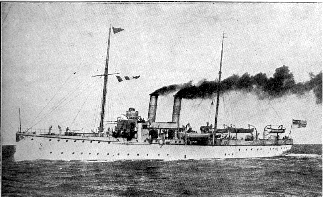Frances 1912 conscription law could be viewed in largely the same terms as hitlers mass buildup of his air force 1936-38
mass deficit spending for a quick burst of military power which could be overcome by their bigger/stronger neighbors once they decided to counter build
"could be viewed", do you have proof of your claim that France was itching for war, such a thing would maybe show up in French foreign policy or statements. Yes France's 3 year law was an attempt to keep up with the Germans. But history show us plenty of examples of two powers trying to keep up with each other without it invariably meaning the one playing catch up is driving for war.
But Ok by that same standard Germany must have been planning to go to war with Britain because it was building more dreadnoughts
Also it not very much like Hitler's build up because we also had the rest of Hitler's action to put his rearmament in context. For instance if France in 1911+ was just like Germany 1936-38 how many equivalent actions by France were there to the Anschluss and annexation of Sudetenland in Czechoslovakia?
the Germans knew the Russian system was still backwards because they ran and co-owned many of
The arms factories inside of Russia most of which collapsed when their German managers where deposed when the war started.
yes as I said they were worried about the future they could see the changes in Russia
That’s also how they knew Russia had ordered mobilization and even knew that russias statements of “partial mobilization” where hogwash. As ajp Taylor pointed out there was no such thing as partial mobilization
And yet the Russians did partially mobilise before fully mobilising
Can you actually support this assertion, Yes there is inertia and yes the militaries will be keen because they always think they're going to win.and it was such a complex event that it couldn’t be altered the military ignored Nicky’s orders for it the same as they would have ignored Wilhelms in Germany you can’t seize all the trains and horses and call the civilians to their reserve barracks and not do war.
But you get that if the German (or Russian) militaries ignore their chain of command that's not proof of your claim, it's proof their chain of command in terms of head of state or civil control has broken down.
Last edited:
